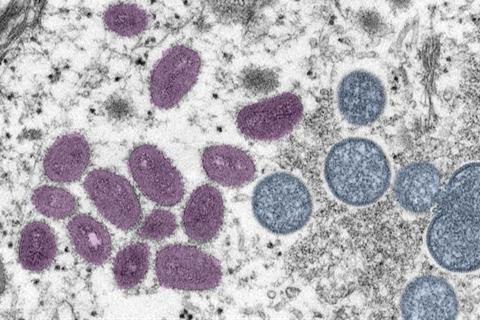Researchers from Boston University Chobanian & Avedisian School of Medicine have developed a novel compound that soon could be used to protect against all tested poxviruses that cause human disease, including monkeypox.

“With more than 44,000 monkeypox cases reported worldwide (more than 10,000 in the U.S. alone), the use of FDA-approved smallpox antivirals to treat human monkeypox cases may play an important role in controlling the outbreak,” said corresponding author John Connor, PhD, associate professor of microbiology.
Connor’s study builds from an earlier finding by him and his group, in collaboration with a team led by Scott Schaus, PhD, professor of chemistry BU’s College of Arts & Sciences and Center for Molecular Discovery (BU-CMD).
In 2011, the groups identified a compound that would inhibit multiple poxviruses (vaccinia, monkeypox, cowpox). In the intervening time they made additional compounds —some of which are more potent inhibitors than the original. They then worked with the Centers for Disease Control to show that their compounds inhibit smallpox virus replication.
According to Connor, these findings highlight the promise of a new class of antipoxviral agents as broad-spectrum small molecules with significant potential to be developed as antiviral therapy.
“This would add a small molecule option for therapy of spreading diseases, including monkeypox and cowpox viruses, that would also be expected to have efficacy against smallpox,” said Connor, who also is a researcher at the Boston University National Emerging infectious Diseases Laboratories.
“With disease-causing pathogens it is always important to have a diverse toolbox of treatments available, in order to counter the pathogen’s evolutionary ability to evade our best interventions,” said lead author Lauren Brown, PhD, research associate professor, organic and medicinal chemistry in BU’s College of Arts & Sciences.
“Our hope is that our work will lead to a new, safe antiviral therapy to add to the extremely limited arsenal of existing drugs for patients suffering from poxviral diseases”.
These findings appear online in the journal Antimicrobial Agents and Chemotherapy.







No comments yet